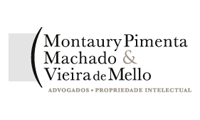In June, the Brazilian intellectual property sector was given a major boost, with the signing of the long-awaited trade agreement between Mercosur and the European Union. The agreement represents a great achievement for Brazilian exporters, as together the two blocs represent 1/4 of the world's GDP (that is, about 25% of na estimated market of 800 million consumers). The agreement (one of the largest and most complex previously negotiated) includes regulatory frameworks, sanitary rules and important provisions related to intelectual property.
One of the main advances in the intellectual property field is protection for geographical indications of Brazilian products, which will also apply when entering European countries. Prior to the agreement, only 24% of Brazilian exports had free access to the European bloc. Now, more than 90% of Mercosur products will be subject to 0% import tax over the next 10 years and the remaining products will have preferential access through exclusive quotas. Exports to the EU are expected to grow by almost 100 billion US dollars by 2035.
The products that will initially benefit will be agricultural, such as orange juice, fruits, coffee, sugar and meats,among others. Some of these products have origin recognition and protection of the geographical indication in Brazil. With the agreement, such recognition will be extended to the European Union markets. Among the products that will be recognized and protected in the European territory are types of cachaça, coffee and wines. The agreement should also increase competitiveness for other industry sectors, such as textiles, chemicals, timber, aeronautics and auto parts.
In light of the above, it is also worth emphasizing the commitments created by the agreement in the areas of patents, trademarks, industrial designs and copyrights, which will increase the protection of intellectual property in the countries of both blocs. With the expected international cooperation and technology transfer between the members of the bloc and an adequate system of protection for these assets, an increase of investments in Brazil is expected.
Finally, it is worth mentioning Brazil's recent adhesion to the Madrid Protocol, an international trademark registration system that enables costs and bureaucracy reduction and extends the protection for Brazilian trademarks in international markets. Today, companies have to pay for multiple applications in each country. The Madrid Protocol will allow the registration of trademarks in approximately 120 member countries.
The other way for Brazilian companies to protect their trademarks in the European bloc countries is through registration of an European Trademark. This process consists of a single trademark registration system that covers all member countries, ensuring that a single trademark filing provides protection throughout the European Union. The proper protection of the rights, including geographical indications, patents, trademarks, industrial designs or any other creation protected by intellectual property, creates the necessary security to export, avoiding potential litigation and protecting important assets. In view of the favorable export environment that is now being envisaged for Brazilian producers, the trade agreement between Mercosur and the European Union, as well as Brazil's accession to the Madrid Protocol should be celebrated as a step forward in the protection of intelectual property.
_____________
 *Claudia Zeraik is a partner at the law firm Montaury Pimenta, Machado & Vieira de Mello Advogados.
*Claudia Zeraik is a partner at the law firm Montaury Pimenta, Machado & Vieira de Mello Advogados.
